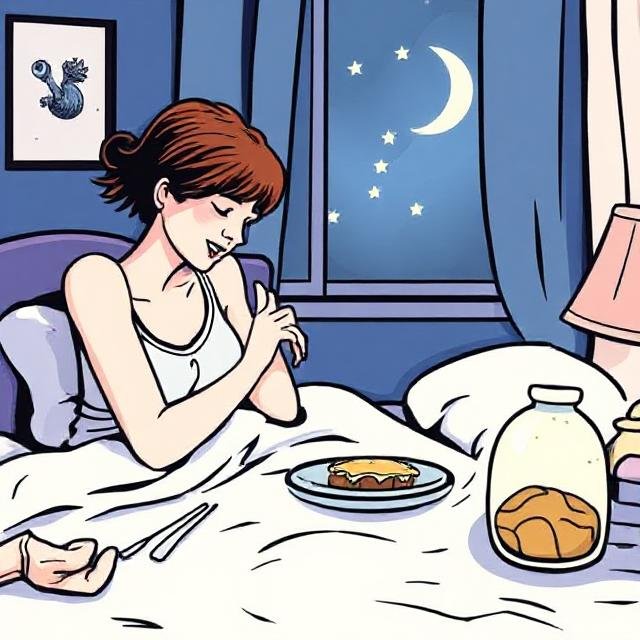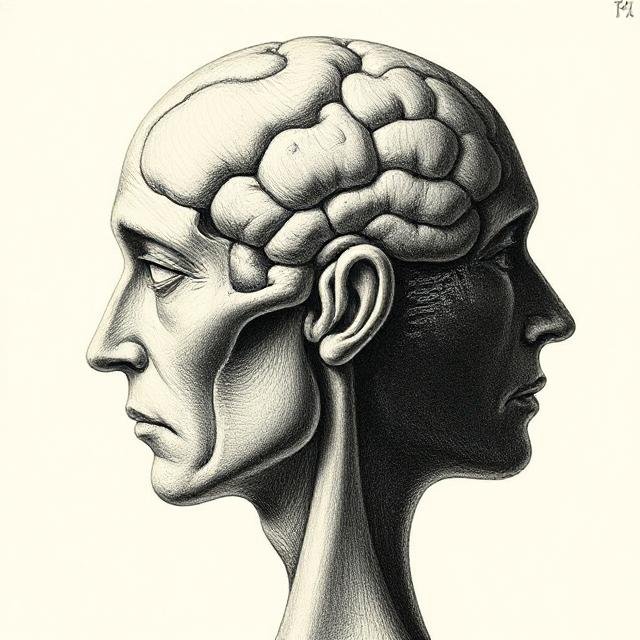What Is Night Eating Syndrome?
Night Eating Syndrome is an eating disorder characterized by a delayed pattern of food intake — people with NES consume a significant portion of their daily calories after the evening meal or during nighttime awakenings.
Key facts:
- NES was first described in 1955 by Dr. Albert Stunkard.
- It’s estimated to affect 1.5% to 5% of the general population, but rates are higher in people with obesity or mood disorders.
- It often coexists with sleep disturbances, depression, and anxiety.
NES is now recognized in the DSM-5 as an Other Specified Feeding or Eating Disorder (OSFED) when it causes significant distress or impairment.
Symptoms and Diagnostic Criteria
People with Night Eating Syndrome typically experience:
- Evening Hyperphagia: Eating ≥25% of daily food intake after dinner.
- Nocturnal Ingestions: Waking up to eat at least twice per week.
- Insomnia or Sleep Disturbances.
- Loss of Appetite in the Morning (Morning Anorexia).
- Mood Symptoms: Increased depression or anxiety in the evening.
- Awareness and Recall: Unlike sleep-related eating disorder, individuals with NES are aware of their eating episodes.
The key difference is that NES involves conscious eating, rather than eating in a sleep-like state.
How Is Night Eating Syndrome Different from Other Eating Disorders?
NES vs. Binge Eating Disorder (BED)
- NES: Eating smaller amounts spread across the night; not necessarily large binges.
- BED: Involves large amounts of food consumed in discrete episodes, often during the day.
NES vs. Sleep-Related Eating Disorder (SRED)
- NES: Fully awake and aware during eating episodes.
- SRED: Eating occurs in partial sleep, often without memory of the event.
Causes and Risk Factors
NES results from a complex interplay of biological, psychological, and social factors. Potential contributors include:
- Circadian Rhythm Disruptions: Alterations in hormones like melatonin and cortisol may shift hunger to nighttime.
- Emotional Regulation: Stress, anxiety, or depression can trigger night eating.
- Genetics: Family history of mood or eating disorders may increase risk.
- Dieting or Food Restriction: Restrictive eating patterns can contribute to rebound eating at night.
Research suggests people with NES often report greater evening hunger and reduced morning appetite, linked to abnormal patterns of appetite-regulating hormones.
Impact on Health and Well-being
Night Eating Syndrome can significantly affect:
- Weight and Metabolic Health: Higher risk of obesity, metabolic syndrome, and Type 2 diabetes.
- Sleep Quality: Frequent awakenings disrupt restorative sleep.
- Mental Health: Increased rates of depression, anxiety, and lower self-esteem.
- Quality of Life: Distress about eating habits and body image.
Diagnosis and Assessment
A thorough assessment typically involves:
- Clinical Interview: Discussing eating patterns, mood, and sleep habits.
- Food Diaries: Tracking timing and quantity of food intake.
- Questionnaires: Tools like the Night Eating Questionnaire (NEQ).
- Sleep Studies: If sleep disorders are suspected.
Early diagnosis is crucial because NES often persists without treatment.
Treatment Options
Treatment for NES is multidimensional and may include:
Cognitive Behavioral Therapy (CBT)
- Helps identify triggers for night eating.
- Teaches coping skills for stress and emotional regulation.
Medication
- SSRIs (e.g., sertraline) have shown promise in reducing symptoms.
- Melatonin may help correct circadian rhythm disruptions in some cases.
Nutritional Counseling
- Establishing structured meal patterns.
- Avoiding extreme dietary restrictions.
Light Therapy
- Exposure to bright light in the morning can help reset circadian rhythms.
Treatment is tailored to each person’s needs, and combination therapy often yields the best results.
Tips for Managing Night Eating
- Stick to regular meal times and avoid long gaps without eating.
- Address stress and emotions through therapy, journaling, or relaxation techniques.
- Limit caffeine, alcohol, and heavy meals close to bedtime.
- Develop a calming bedtime routine.
- Keep tempting foods out of the bedroom or kitchen at night.
- Seek professional help if symptoms persist.













